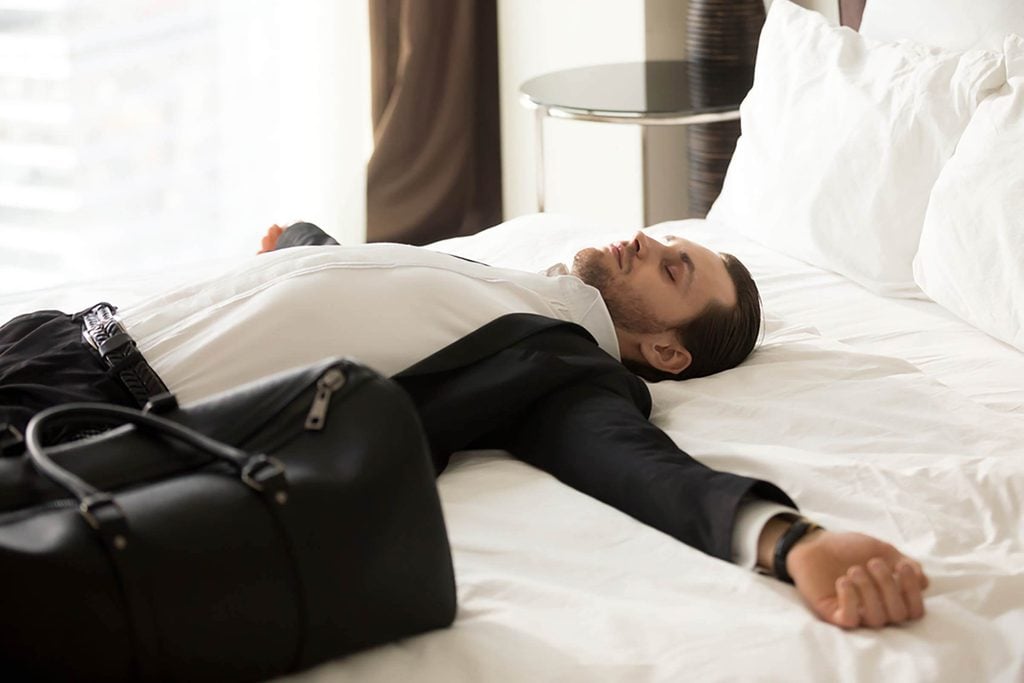This Is the Scientific Reason Why You Get a “Dead Arm” When You Sleep
Updated: Sep. 09, 2019
Zombie arm!

It can happen pretty much in any lounge-worthy locations. You could be taking a brief siesta in a hammock, nodding off while watching a documentary in a recliner, or cozying up for the night in your very own bed. You nod off with your arm pretzel-wedged in some sort of awkward position. (By the way, this is what your sleep position says about you.) After a period of time, you shift your arm to readjust and… well, you can’t shift your arm to readjust.
You have a dead arm. Your arm is asleep. Regardless of what you call it, your situation remains the same, with your appendage positively limp and useless. But what exactly is going on? According to Vox, this phenomenon is happening for one of two reasons.
If this happens after a sleeping period of over 60 minutes, your arm might still be experiencing REM-sleep induced paralysis. (This paralysis plays a major role in why you have such difficulty sleeping on airplanes.) When you enter the REM phase of sleep, your brain signals the rest of the body to lock up its movements, so that you don’t begin to act out your dreams and potentially cause yourself harm. When this paralysis stays in effect for your whole body, you’re experiencing sleep paralysis. These are the scary things that can happen if you have sleep paralysis.
The next possibility is that you’re experiencing nerve compression, which is, in turn, causing temporary paralysis to a particular area of the body. Nerve compression occurs when nerves are squeezed, pressured, and contorted into unnatural positions. The compression basically prevents your nerves from relaying information to the brain, so when they reset, a rush of stimuli is sent shooting to the brain, and you begin to experience the pins and needles sensation.
So while a dead arm may be uncomfortable, rest assured (literally) that it isn’t caused by anything life-threatening. If the annoyance it causes interferes with your sleep, try out these tips for better sleep, according to sleep doctors.
[Source: Vox]














